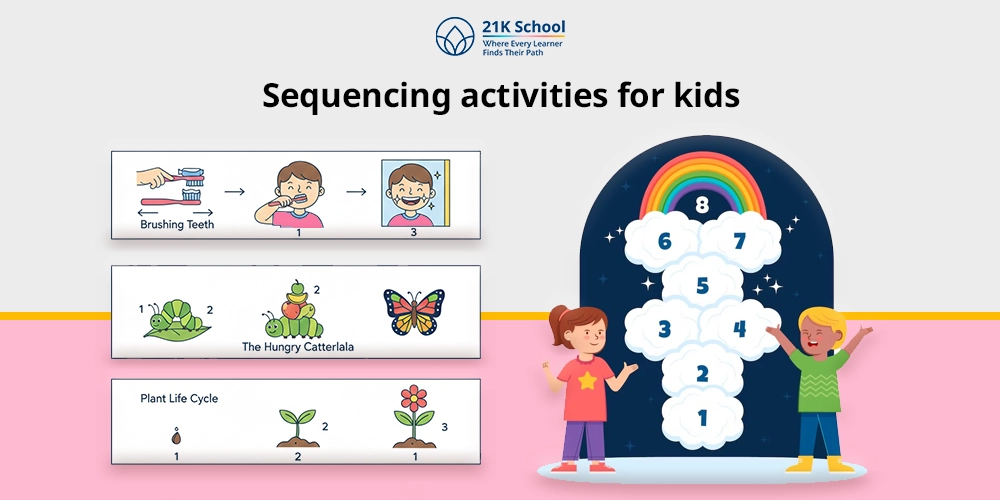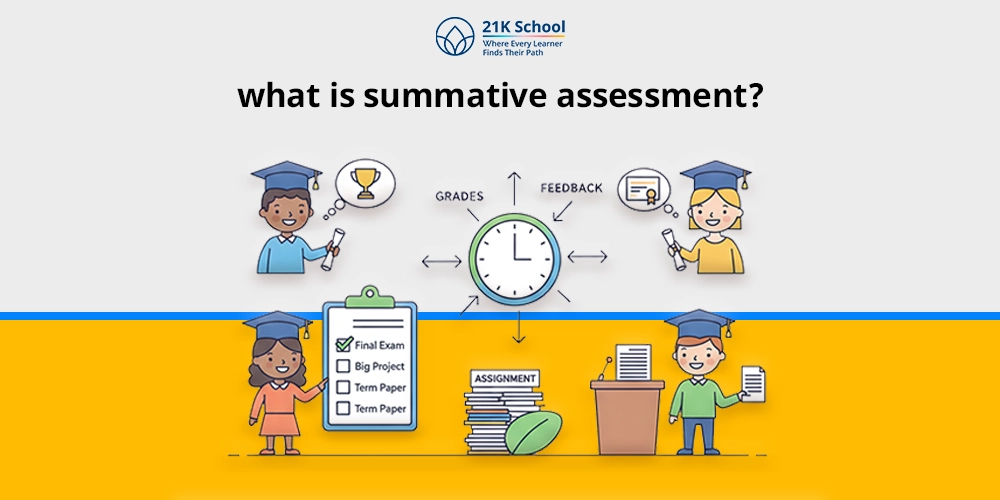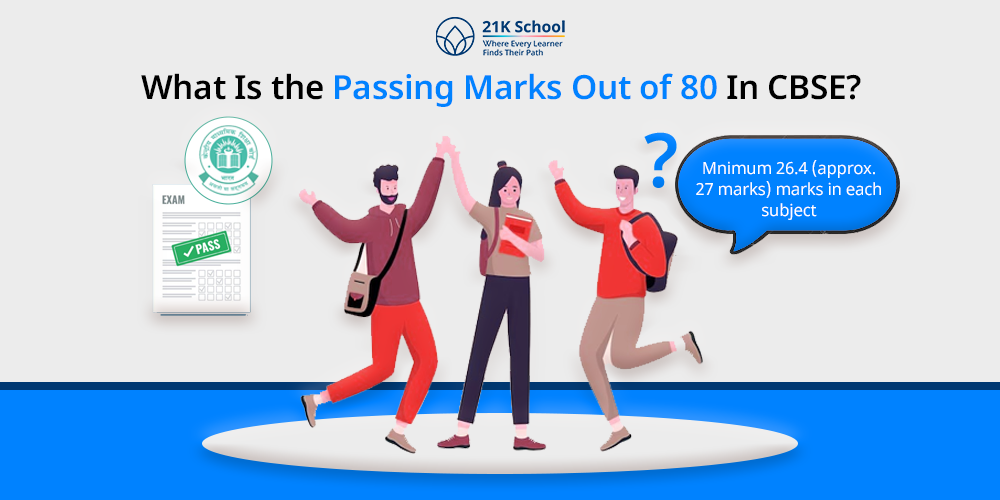
CBSE is one of the famous boards in India in which a lot of learners wanted to enrol or already a part.
Understanding the guidelines, rules and different criterias like exam related details help learners to learn effectively.
Many students studying in the CBSE board in Class 10th and 12th are appearing for exams in the upcoming academic year and have a lot of questions in mind.
As exams are approaching, learners are concerned about the passing marks of CBSE exams. Here we will explore What is the Passing Marks Out of 80 in CBSE? and many more important guidelines one must know.
Contents
What is the Passing Marks Out of 80 in CBSE?
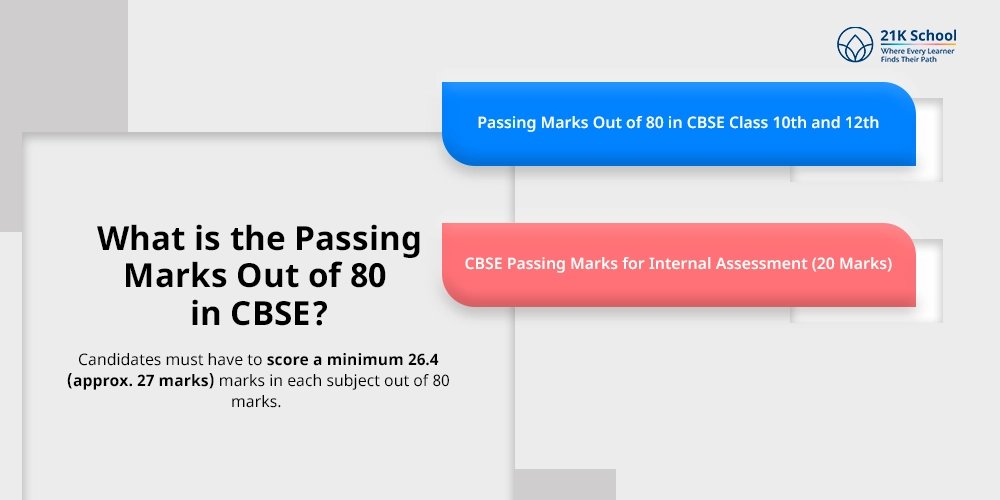
CBSE follower sample policy when it comes to passing marks. Candidates must have to score a minimum 26.4 (approx. 27 marks) marks in each subject out of 80 marks.
1. Passing Marks Out of 80 in CBSE Class 10th and 12th
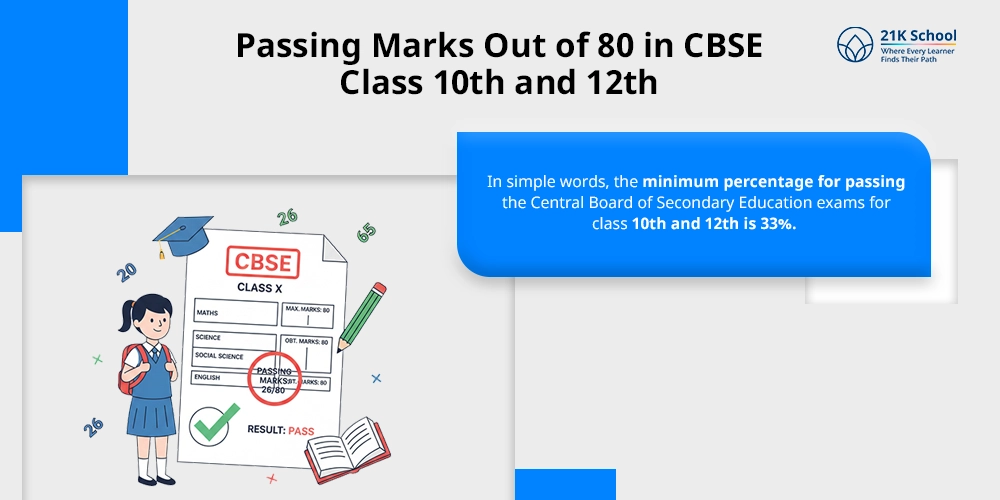
In simple words, the minimum percentage for passing the Central Board of Secondary Education exams for class 10th and 12th is 33%.
33% of 80 = 26.4, rounded up to 27 marks.
For Class 10th: The CBSE exam follows the 80 + 20 pattern where 80 marks is for theory and 20 for internal assessment .
Learners who fulfill the criteria of both are declared as “PASS”.
For Class 12th: Same as 10th CBSE follow the 80 + 20 pattern for class 12th but not for all subjects.
While other subjects work on 70 + 30 (theory + practical). Subjects like Physics, Chemistry and Biology.
2. CBSE Passing Marks for Internal Assessment (20 Marks)
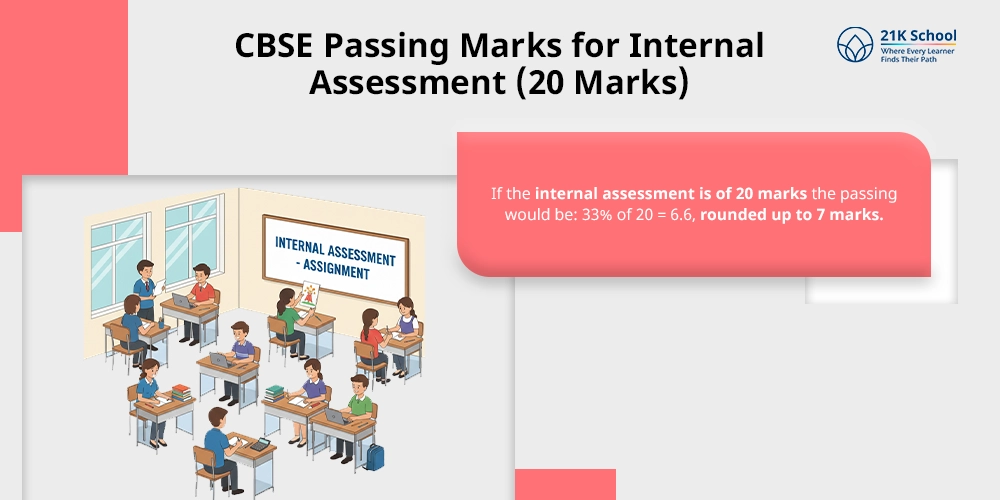
The internal assessment is also as crucial as CBSE theoretical exams. The assessment includes Periodic tests, Notebook submission, assignments, projects, practical work.
If the internal assessment is of 20 marks the passing would be:
33% of 20 = 6.6, rounded up to 7 marks.
Remember, both theory and practical or internal assessment are separately calculated and each needs a minimum passing mark to pass the exam.
Class 10th & 12th Passing Marks Criteria: Official CBSE Guideline
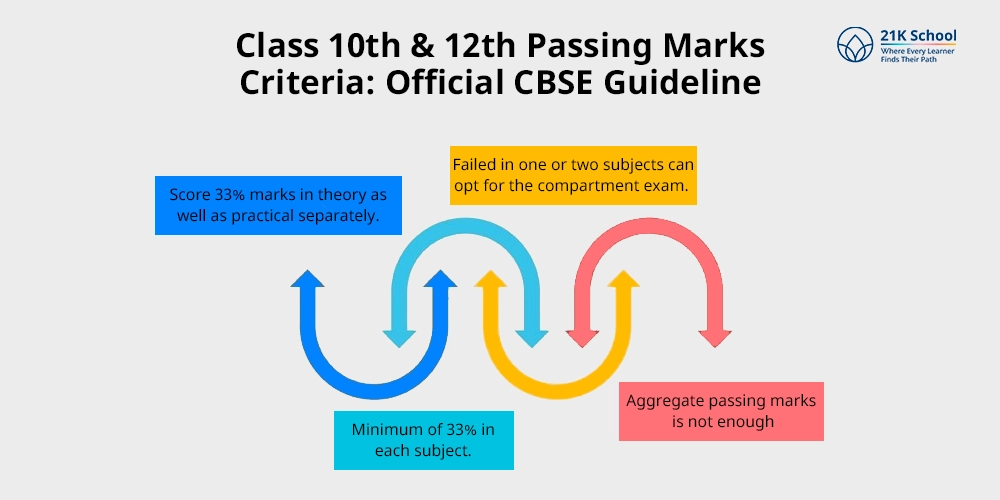
CBSE official website clearly mentions all the details related to passing the CBSE Examination Bye-laws, Section 40. The CBSE guidelines stated that:
- Student marks score 33% marks in theory as well as practical separately.
- The overall requirement is a minimum of 33% in each subject.
- A candidate who failed in one or two subjects can opt for the compartment exam. Those who have failed more than two subjects need to retake the academic year. Learn how to apply for revaluation in cbse 10th .
- Remember aggregate passing marks is not enough, one needs to work on each subject and practical.
How to Calculate CBSE Passing Marks?
Given below is a quick and simple calculation of both Class 10th and Class 12th CBSE passing marks:
1. CBSE Class 10th:
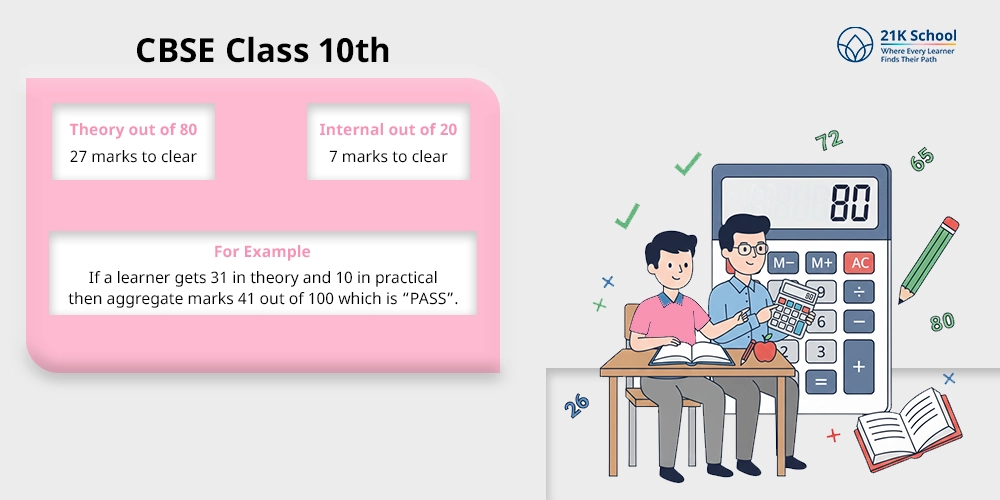
- Theory out of 80: 27 marks to clear.
- Internal out of 20: 7 marks to clear.
- For Example: If a learner gets 31 in theory and 10 in practical then aggregate marks 41 out of 100 which is “PASS”.
2. CBSE Class 12th:
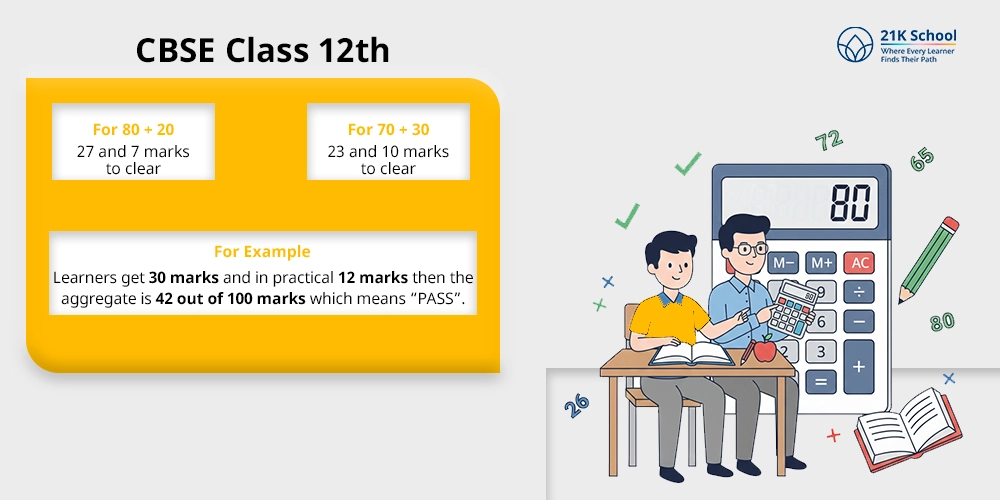
- For 80 + 20: 27 and 7 marks to clear.
- For 70 + 30: 23 and 10 marks to clear.
- For Example: In subjects like biology learners get 30 marks and in practical 12 marks then the aggregate is 42 out of 100 marks which means “PASS”.
What Happens If a Student Fails to Score Passing Marks?
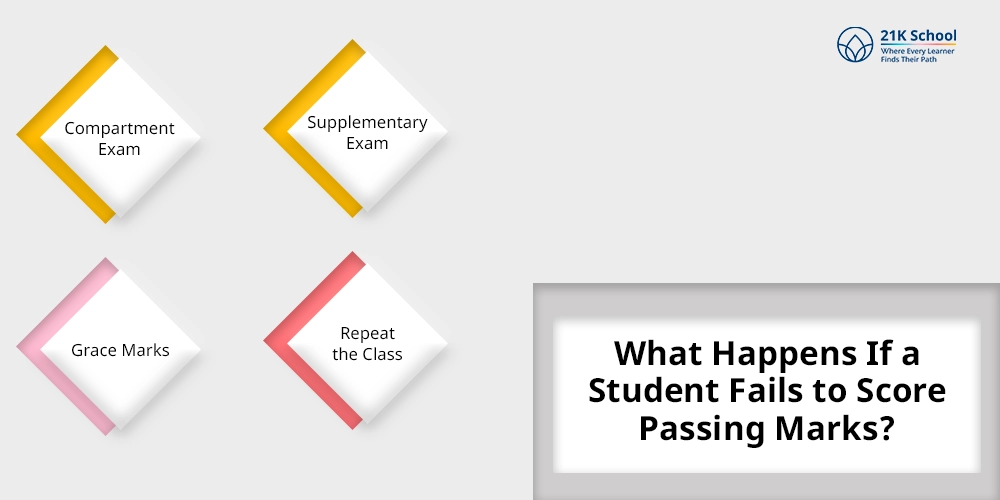
Sometime students failed to score the above mentioned passing marks, CBSE provide alternative option like:
1. Compartment Exam
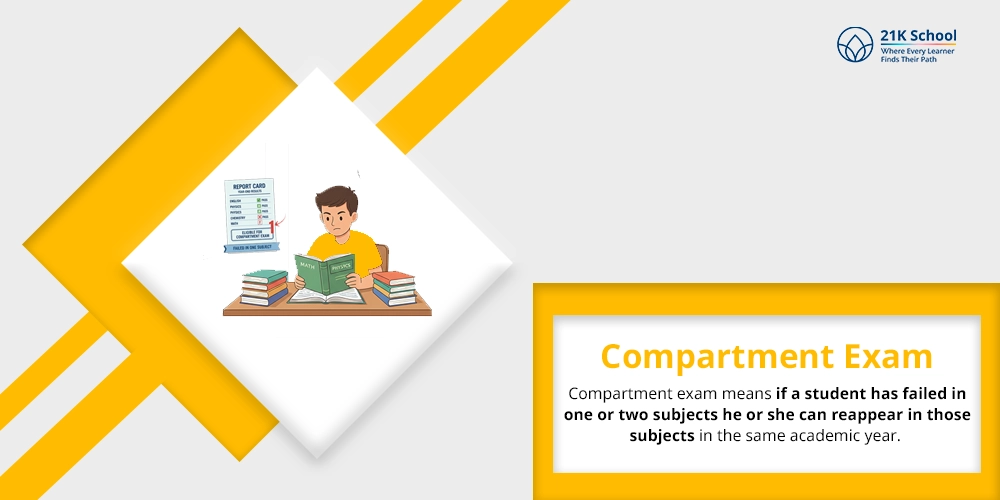
Compartment exam means if a student has failed in one or two subjects he or she can reappear in those subjects in the same academic year.
2. Supplementary Exam

Appearing in supplementary exams gives another chance to learners to pass and improve their marks without wasting the academic year.
3. Grace Marks
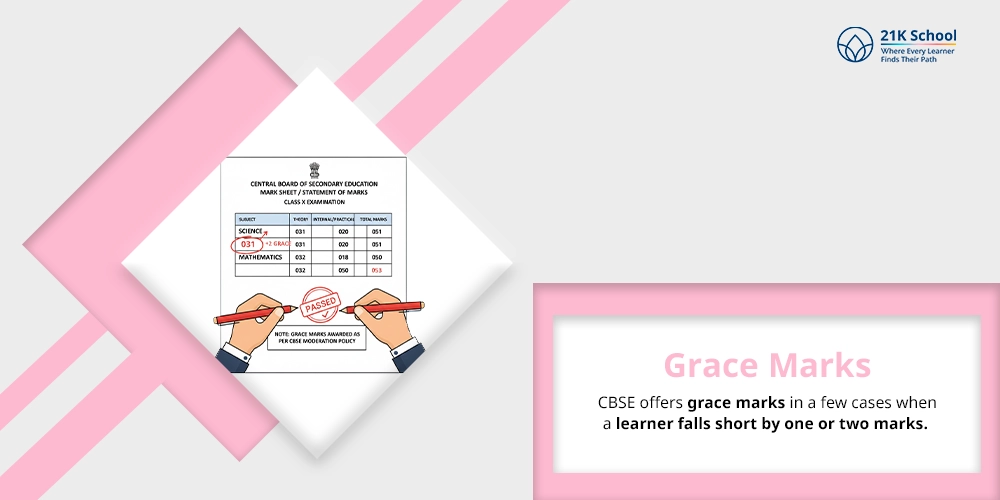
CBSE offers grace marks in a few cases when a learner falls short by one or two marks.
4. Repeat the Class

Failing in more than two subjects needs to repeat the whole academic year.
Common Myths and Facts About CBSE Passing Marks
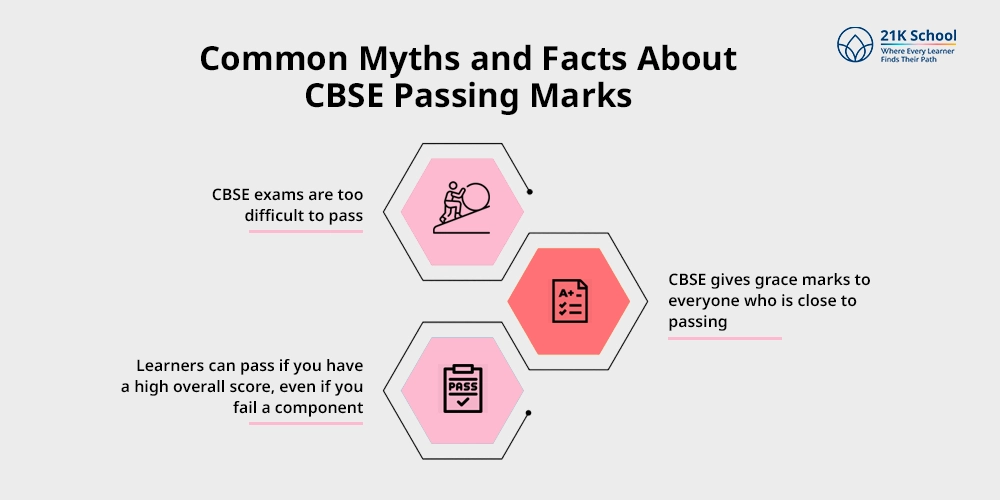
Mention below points are some common myths and facts about CBSE passing marks learners should aware of:
- CBSE exams are too difficult to pass:
Fact: CBSE exams are designed to identify learners’ concept understanding, theoretical numerical and practical knowledge which offers a balanced environment not too difficult or too easy.
- CBSE gives grace marks to everyone who is close to passing:
Fact: Grace marks are for those who miss by one or two marks pass the examination or minimum criteria of 33% in CBSE examinations.
- Learners can pass if you have a high overall score, even if you fail a component.
Fact: No, to pass learners need to secure 33% as a minimum score in each subject whether it is theory and practical.
Tips to Get Good Marks in CBSE Board Exams
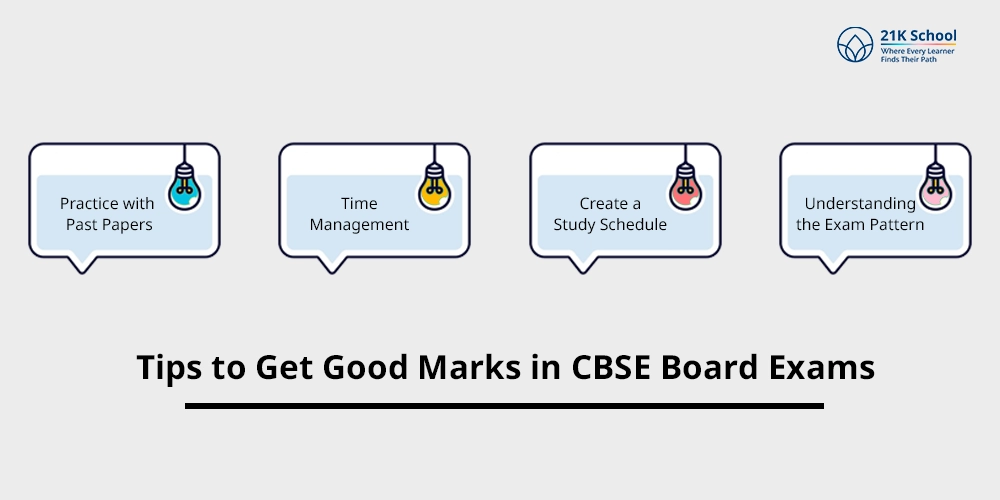
For the CBSE exams, the goal is not just to score the minimum passing marks, but to aim for higher scores that can open doors to better career opportunities and future academic success.
Here are some common tips to get good marks in CBSE Board Exams:
1. Practice with Past Papers:
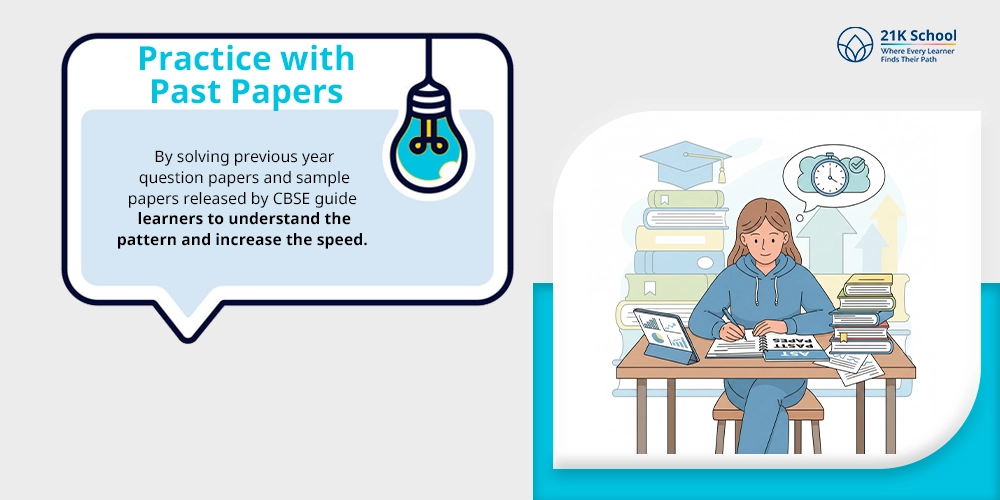
By solving previous year question papers and sample papers released by CBSE guide learners to understand the pattern and increase the speed.
2. Time Management:

Time management is one of the important parts of learning to study effectively.
The CBSE question paper comes with different sections and with the help of time management skills , learners can divide time for each section for good marks.
3. Create a Study Schedule:

By creating a study time table learners can divide all subjects based on priority. Remember to include breaks to avoid burnout.
4. Understanding the Exam Pattern:
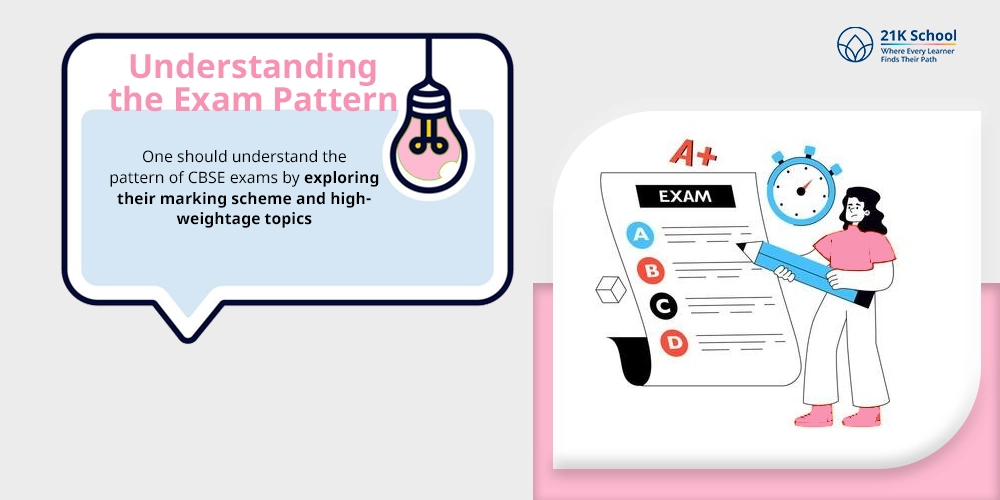
One should understand the pattern of CBSE exams by exploring their marking scheme and high-weightage topics to strategies the answer writing.
Conclusion
For learners scoring good/higher marks can be challenging but not impossible. By understanding the passing marks out of 80 in CBSE board exams, learners can align their preparation accordingly.
As per the guideline for both class 10th and 12th passing in theory and practical or internal assessment separately is mandatory.
The key tip is to aim for the high score to get good marks by practising previous year question papers and sample papers, making study routines , improving time management skills and focus.
With constant efforts, learners can achieve desired marks in CBSE board examinations.

